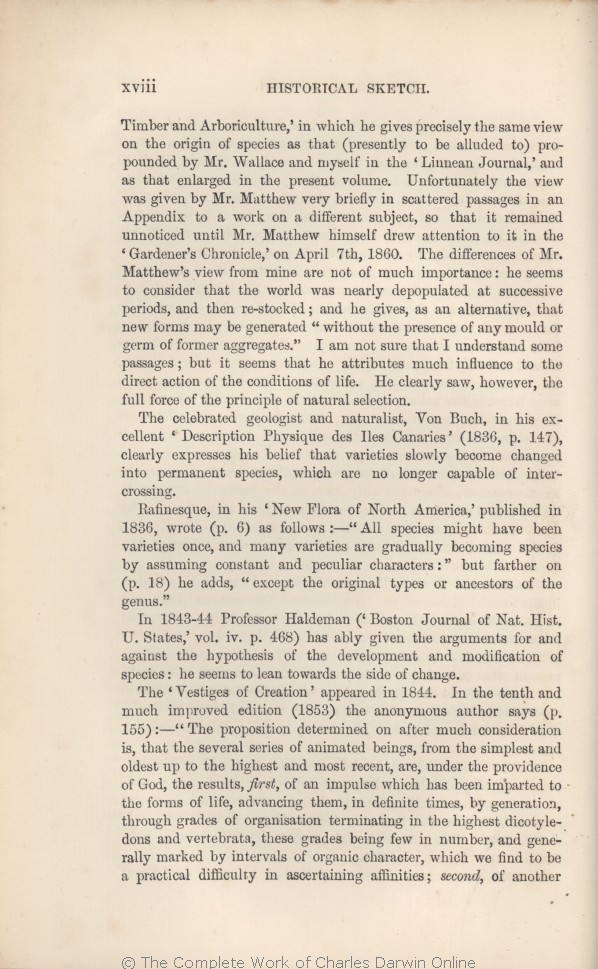Timber and Arboriculture,' in which he gives precisely the same view on the origin of species as that (presently to be alluded to) propounded by Mr. Wallace and myself in the 'Linnean Journal,' and as that enlarged
..| ..... 1866 1869 1872 | | on 1861 |
| 'Gardener's 1861 1866 1869 | | 'Gardeners' 1872 |
| gives, 1861 1866 1869 | | gives 1872 |
| 4 blocks not present in 1866 1869 1872; present in 1861 | | In answer to a letter of mine (published in Gard. Chron., April 13th), fully acknowledging that Mr. Matthew had anticipated me, he with generous candour wrote a letter (Gard. Chron. May 12th) containing the following passage:— "
To me the conception of this law of Nature came intuitively as a self-evident fact, almost without an effort of concentrated thought.
Mr. Darwin here seems to have more merit in the discovery than I have had; to me it did not appear a discovery.
He seems to have worked it out by inductive reason, slowly and with due caution to have made his way synthetically from fact to fact onwards; while with me it was by a general glance at the scheme of Nature that I estimated this select production of species as an
à
priori
recognisable fact— an axiom requiring only to be pointed out to be admitted by unprejudiced minds of sufficient grasp."
|
|
|
The celebrated geologist and
naturalists, | naturalists, 1869 | | naturalist, 1866 1872 |
|
|
Rafinesque, in his 'New Flora of North America,' published in 1836, wrote (p. 6) as
follows:—"All | follows:—"All 1866 1869 | | follows:— "All 1861 1872 |
| characters:" 1869 | | characters: "but 1861 | | characters:' but 1866 | | characters"; but 1872 |
| but farther 1869 | | farther 1861 1866 1872 |
|
|
In 1843-44 Professor Haldeman
('Boston | ('Boston 1869 1872 | | (Boston 1861 1866 |
| States,' 1869 1872 | | States, 1861 1866 |
|
|
The 'Vestiges of Creation' appeared in 1844. In the tenth and much improved edition (1853) the
ananymous | ananymous 1869 | | anonymous 1861 1866 1872 |
| 155):—" 1866 1869 | | 155):— " 1861 | | 155):— 1872 |
| results, 1861 1866 1869 | |
results,
1872 |
|
first,
1869 | |
first
,
1861 1866 1872 |
|
second,
1866 1869 | |
second
,
1861 1872 |
|









